- About Fujitsu Scholarship
- Program to Participate: Overview
- How to Apply
-
Testimonial
- Ms. Lauren Mary Trethowan, Australia
- Ms. Srinita Mitra, India
- Ms. Sonam Rathore, India
- Mr. Francis Anthony, India
- Mr. Mohammad Zuhair, Indonesia
- Ms. Satitphone Phommahack, Laos
- Mr. Muhammad Zaim Halilul Rahuman, Malaysia
- Mr. Wai Yan Lin, Myanmar
- Ms. Hannah Elsie Norton, New Zealand
- Mr. Marianito Kintana Palana, Philippines
- Mr. Adrian Jarabejo Robles, Philippines
- Ms. Lauren Rose Rosales Tanyag, Philippines
- Mr. Jun Ryan Comodero Orbina, Philippines
- Mr. Noriman Ali Salam, Singapore
- Ms. Esther Li Hwang Chia, Singapore
- Ms. Hong Yun Lee, South Korea
- Dr. Piyumi Kapugeekiyana, Sri Lanka
- Ms. Ada Chirapaisarnkul, Thailand
- Mr. Krittawit Krittayaruangroj, Thailand
- Ms. Thu Ha Ngo, Vietnam
- FAQ
- Privacy Policy
- Legal Notice
Archived content
NOTE: this is an archived page and the content is likely to be out of date.
Ms. Esther Li Hwang Chia, Singapore
Learning through the Fujitsu Scholarship Program, I found new directions through which I could contribute to my organization and the community.
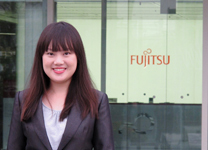
Fujitsu Scholar on the 2013 Spring Course:
Esther Li Hwang Chia, Singapore
Course Manager & Lecturer
Temasek Polytechnic
Esther Chia works in the School of Informatics & IT at Temasek Polytechnic, an institution for higher education in Singapore. Not only is she a lecturer, she also plays a role as a course manager to foster collaborations with industry partners to develop work-ready graduates in the financial and the IT industry in Singapore by equipping students with current and relevant skills and knowledge.
I was drawn to the contents of the program, which allowed for the practical study of subjects I had no prior experience with.
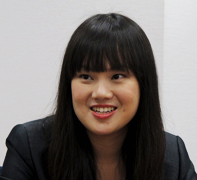
I learned about Global Leaders for Innovation and Knowledge program with Fujitsu Scholarship through a superior at work. What first struck me about the program was that it wasn’t just based on a theoretical framework, but included practical content, such as individual projects focused on on-site studies and resolving issues. What also stood out compared to other management programs was how the curriculum was shaped to develop students’ abilities to have a more multifaceted approach to management by including general academic studies in addition to learning about management, and by providing a learning environment that included students from all over the Asia-Pacific region. I applied for this program in the hope that it would help me approach work in different ways and contribute to my organization and the community at large.
The practical classes started with the first lecture. Classes were extremely interactive, and the case studies were also practical. Professors shared their invaluable experiences in their area of expertise with respect to the case studies and concepts. The learning we gained from such sharing went beyond anything one can learn from simply reading case studies. This made classes deeply interesting and meaningful. Over the three and a half month program period I came into contact with many experts and leaders. I was also introduced to many examples of innovation, all this in a learning environment that continued to maintain a focus on practical education.
I realized the importance of leaving the classroom and actually experiencing the environment first-hand
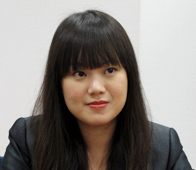
In Thailand I visited the “Doi Tung Development Project*¹,” which had helped poor villagers in a mountainous region achieve economic independence, and conducted a four-day field study. I met directly with people from all walks of life, from the royal family of Thailand, who began the project based on the philosophies advocated by the King of Thailand, the operating organization that developed its businesses based on these philosophies and the leaders and staff who worked there, to the villagers who found work through this project. I heard conversations on the kind of problems facing each group of stakeholders and how they went about resolving them. By speaking at length with not only the leaders but the villagers as well, and having discussions with my classmates that went late into the night based on the content of these conversations, I was able to gain a deeper understanding of the situation at hand.
Innovation cannot come from treating issues as they seem on the surface. Through my experiences I was able to gain an understanding of the importance of delving deeper to reach the true crux of the issues at hand by opening a dialogue that everyone was deeply involved in as individuals.
*¹ The project started by the royal family of Thailand with the aim of reducing issues with poverty experienced by the people in the northeastern part of Thailand. The project succeeded in enabling villagers to be self-sufficient as they produce cash crops such as coffee instead of narcotics.
Now that I am a working member of society I am finding new things to learn
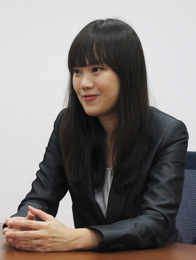
“Knowledge Management,” which could be considered the foundation of the program, was the first aspect of management theory that I learned about, and I will strive to be aware of, and put into practice processes and frameworks that create knowledge when performing my work in the future.
Besides this, one such methodology that I learned in a course on “ethnography*²” contained extremely useful techniques for resolving problems in the workplace. The ethnographic method of surveying people’s behavioral patterns through field work enabled us to learn how people acted, and what kind of influence they had on the workplace. We were able to find multiple areas of regularity when looking over our notes that had been used to record the actions people took during observations at the Polynesian Cultural Center. These findings enabled us to realize the meaning behind people’s actions and the actual situation at hand.
*² A field survey method in the field of cultural anthropology. It is a method of entering a living or work environment and studying the everyday lifestyles from the perspective of the resident or working person.
The encounters I had with the fellow students will undoubtedly provide me with support in the future.
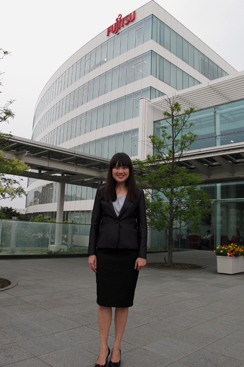
All participants in the program were outstanding professionals representing their own country. Each participant had their own specialty, and we learned to achieve goals as a team by combining the strengths of each specialist in their field. We were able to influence each other and learn from one another while recognizing our differences. The personal connections we forged through the program were not limited to a closed network amongst ourselves, but also included links to past graduates, forming a “continually growing network” that will produce further personal connections from this.
Over the three and a half month period we spent together we shared common experiences where we carefully considered “what is beneficial to the company and society at large as well” concerning a range of issues, and these experiences will no doubt offer great sustenance in our respective business fields in the future.
In contrast to other programs, the Global Leaders for Innovation and Knowledge program has a rich set of general education classes. This is because of the importance placed on making judgments based on a universal set of values that asks “what is good?” when determining matters in an age and environment such as the one we face today, where change happens drastically making it difficult to make decisions based on previous experience, and because studying liberal arts is considered to be extremely beneficial in developing the ability to make these kinds of decisions. Although I have studied liberal arts at university, learning this topic again as a working member of society has helped me develop new perspectives and realizations.
Now that the program has come to an end, it is my turn to drive innovation in the organization and community I belong to. Based on my experiences I too will start doing what I can to create a better future for the organization and community I am a part of and Singapore as a whole through education. Through the program, I have come away with a strong awareness of the common good, contributing to society and social responsibilities. I am someone involved with education, so I would like to use education as a platform to have students think on the “common good.” I can think of nothing better than if my future students were to go about their work with a firm idea of what is good while also thinking about their own social responsibilities to their community, regardless of the profession they choose.